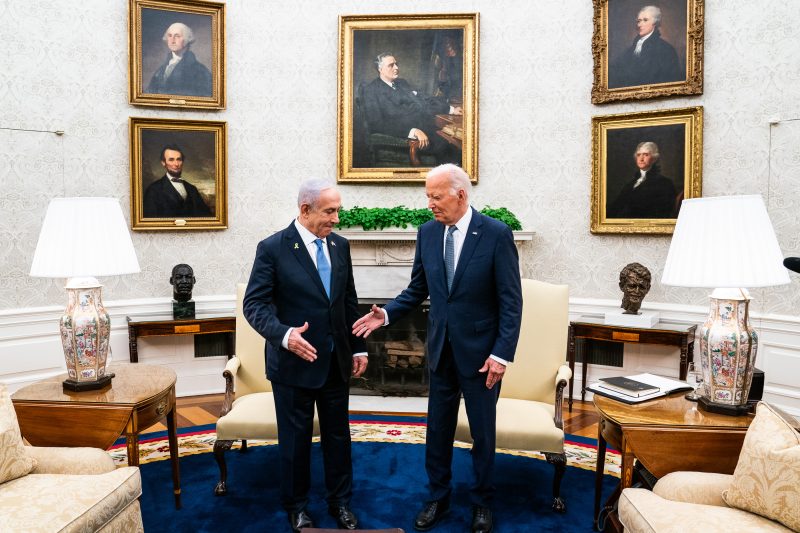Netanyahu’s U.S. Visit Revealed No Workable Plan for Peace, Critics Say
Israeli Prime Minister Benjamin Netanyahu’s recent visit to the United States has left critics disappointed, with many arguing that no workable plan for peace was revealed during his time in Washington. This visit, which spanned several days and included meetings with top U.S. officials, was highly anticipated as a potential opportunity to address the long-standing Israeli-Palestinian conflict and move towards a resolution. However, observers have noted a lack of concrete proposals or initiatives put forth by Netanyahu during his stay.
One of the key criticisms leveled against Netanyahu’s visit was the absence of a clear roadmap for advancing peace negotiations with the Palestinians. Despite discussing the need for security arrangements and economic development in the region, Netanyahu did not articulate a detailed plan for achieving a two-state solution or addressing the core issues that have long hindered progress in the peace process. Critics argue that without a clear framework for moving forward, the prospects for meaningful dialogue and reconciliation remain uncertain.
Furthermore, Netanyahu’s meetings with U.S. officials, including President Joe Biden and Secretary of State Antony Blinken, have been described as largely symbolic, with little substantive progress made on the peace front. While the importance of maintaining strong U.S.-Israel relations was emphasized during these discussions, critics suggest that Netanyahu missed an opportunity to demonstrate genuine commitment to peace and inspire confidence in his leadership towards a resolution.
In addition to the lack of a detailed peace plan, critics have also raised concerns about Netanyahu’s stance on key issues such as settlement expansion in the West Bank. The Israeli government’s continued support for the construction of settlements in disputed territories has been a major point of contention in previous peace negotiations, and critics argue that without a commitment to halt or reverse settlement activity, progress towards peace will remain elusive.
Overall, Netanyahu’s visit to the U.S. has underscored the challenges and complexities of achieving a lasting peace in the Middle East. While diplomatic engagement and dialogue are essential components of any peace process, critics argue that without a clear and comprehensive plan for addressing the core issues dividing Israelis and Palestinians, the path to peace will remain uncertain. Moving forward, it will be critical for all parties involved to demonstrate genuine willingness to compromise, engage in constructive dialogue, and take concrete steps towards a just and lasting resolution to the conflict.
